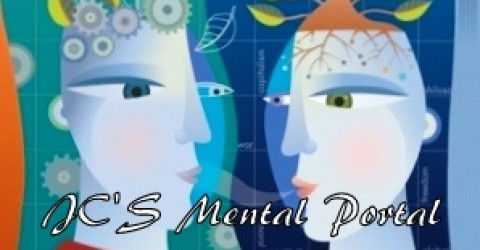My Response to Hugo’s Superconsumerism: http://web.media.mit.edu/~hugo/publications/drafts/Nada8-Liu-Superconsumer.pdf
I want to share this with you because, after reading Hugo’s paper, I realized that I have personally went through the process of cultural perspectivism, in that I was first, to borrow Hugo’s words, the “naïve [cultural] consumer, frustrated and anxious.” But because “[my] spirit[could] not tolerate anxiety and meaninglessness for long,” I have reshaped the American culture that was once my “oppressor into tool” which I now wield it integratively with my other cultures for moment-to-moment, situational purposes. I can do this because I am in tandem the consumer and the owner of multiple cultures and have a diverse range of self-expressive sociolinguistic mediums; I can never be mainstreamed into only one culture; I thus believe that I have found what Hugo calls one’s “niche culture” composed of rich cultural languages and authority.
I think this is what Hugo means by a “superconsumer” a postmodernist of auto-culture, a person of credible (authoritative) culture amidst an “in-credible culture,” a concept and a reality that emerges in stages as one travels this journey of cultural transformations from being naïve to superconsumer (which I do not totally agree; I think some will get stuck in this journey, forever xenophobic if not, in Hugo’s term, an incorrigibly “passive consumer”).
If I may reiterate Hugo to make sure that I am understanding his continuum of cultural evolvement: 1) Strauss & Derrida’s (1966) two primal models: a “bricoleur,” a cultural hero, opportunist, and critic who uses one culture to undermine another and his/her antithetical counterpart, an “engineer,” a cultural fool who is one-dimensional and submissive to authority; then 2) Jameson’s (1991) “intertextualist,” a culturally unsettled, faint vestige of globalism who is unduly influenced by and thus desensitized to milliard cultural propagandas; and 3) Bhabha’s (1994) biculturalist who, rather than being desensitized, by negotiating and contesting the bipolar cultures of one’s motherland and the host country has carved out a transcendent space of beyond in a conjoining sense; and ultimately, which brings us back to 4) Hugo’s (2006) superconsumer, an emblem of self-constructed culture which one is not born into ethnically/geographically but willfully and optimistically self-fashioned by utilizing/reconfiguring contaminated (or dumbed down) original cultures in the age of hyperglobalisation.
Now, what I don’t understand is Hugo’s paradoxical concept of simultaneously submitting one’s self to a controller and yet controlling the controller. Help me with this, please. At the same time, I find Hugo’s “poetics of three critical experiences” simply exquisite! I agree 1000% and appreciate his graphic representations of his dense, potentially confusing theory.
4 Comments
Sorry, the comment form is closed at this time.

his suggestion that the controlled should control the controller is a nietzschean insight: that there should be a commanding voice in the internalized plurality so that the individual can achieve heroic individualism.
So, you’re saying that Hugo’s superconsumerism is more specificallyrelated to palpable consumerism, the use, abuse, and control ofmaterials, per se?
Something like that. He believes that contemporary consumerism (with information being enhanced) makes available a hitherto unknown opportunity for advanced analysis and understanding. So there is a chance for a newer species of heroic individualism.
http://prieslar.info/?search=Wlodzimierz+Chomickihttp://prieslar.info/?search=opisy+do+gadu+gaduhttp://prieslar.info/?search=half+life+cdkeyhttp://prieslar.info/?search=hit+na+mundialhttp://prieslar.info/?search=www+swieto+niepodlegloscihttp://prieslar.info/?search=KACZYnKI